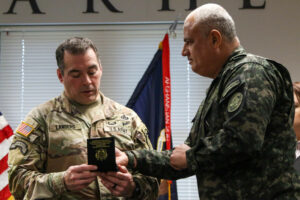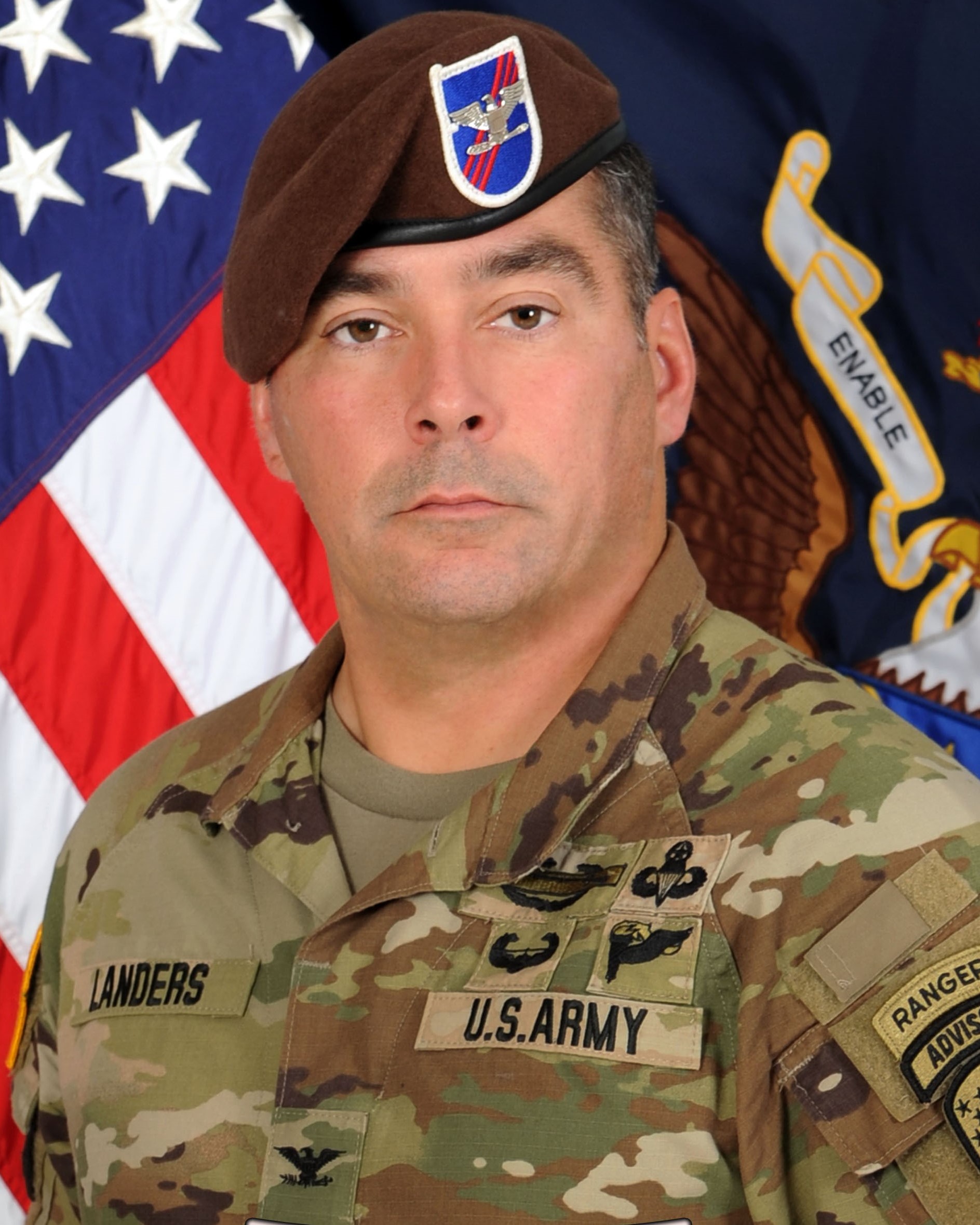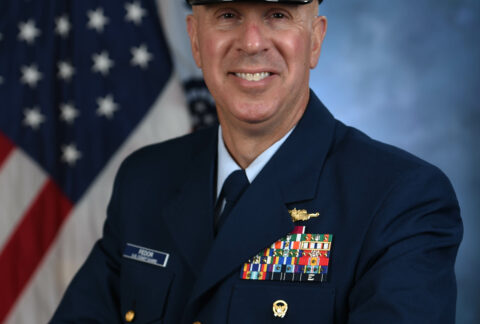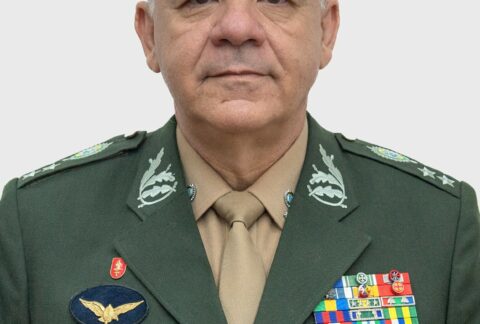The 1st Security Force Assistance Brigade (1st SFAB) is a specialized unit which has for core mission to conduct training, advise, assist, liaise, and support operations with partner nations in U.S. Southern Command’s (SOUTHCOM) area of responsibility (AOR).
This is how its commander, U.S. Army Colonel Christopher Landers, describes his highly trained soldiers, who are hand-selected advisors capable of operating in any environment and build enduring relationships.
Col. Landers spoke with Diálogo about the importance of the 1st SFAB and their capabilities to support Latin American and Caribbean partners.
Diálogo: What are Security Force Assistance (SFA) missions, and how do SFABs, such as 1st SFAB, contribute to such mission?
U.S. Army Colonel Christopher Landers, commander of 1st Security Force Assistance Brigade: SFA are any actions from the U.S. Department of Defense to build capacity and capability among a foreign partner security force. The 1st SFAB contributes as the U.S. Army’s only force entirely dedicated to SFA missions in SOUTHCOM’s AOR. We’re purposely built to advise, assist, liaise, and assess our partners competition, support crisis and, when necessary, during conflict.
Diálogo: How many SFABs are there within the U.S. Army and how many soldiers are there within each?
Col. Landers: There are currently six SFABs across the U.S. Army. Five of them are comprised of full-time active-duty soldiers, and one is a National Guard unit. Each SFAB has approximately 800 soldiers who come from a wide variety of military occupational specialties ranging from infantry, field artillery, intelligence, logistics, and more.
Diálogo: How does U.S. Army South pre-deployment training seminar, Operation Alamo Shield Mission Prep, prepare 1st SFAB?

Col. Landers: Like any pre-deployment training, we’re looking to do as much as possible to ensure we can maximize success when we’re employed. I think the Army South team does a tremendous job ensuring that our advisors understand the scope of their mission, regional policies and activities, and lessons learned. We come out of pre-deployment training ready to demonstrate that we are the partner of choice for our security force counterparts.
Diálogo: What are the qualities of an SFAB soldier?
Col. Landers: We seek soldiers who are experts and professionals in their military specialties. Advisors must understand the technical aspects of their job so they can pass that knowledge to their partners. They also must be experts in basic soldier tasks and military planning in order to contribute to their advisor teams and assist partners with missions prep. In fact, most advisors who come to us have already completed their key position for their rank, so they come to the team with incredible experience from across the Army. Independence and maturity are two other critical advisor qualities. Our advisors can always make sound decisions and act in the best interest of their nation and their partner force.
Diálogo: How is the relationship of 1st SFAB with security forces of the region beneficial?
Col. Landers: It’s beneficial to our partners as they receive a dedicated team who is right there with them on the ground assisting them with military operations, planning, institutional training, and more. We can provide input on techniques, procedures, doctrine, and provide partner leadership assessments on ways to improve their capacity through the use of our advisors. The missions are also beneficial for us. Learning isn’t a one-way street and often we find ourselves learning from the partner force just as much as they learn from us.
Diálogo: How does 1st SFAB contribute to strengthening mission assurance and military effectiveness of the security forces of the region?
Col. Landers: One way that stands out is our ability to integrate into our partner’s military institutions. Advisors who support professional military education at a high level can make impacts and pass on knowledge that quickly reach across a partner’s entire force.
Diálogo: What are the capabilities that 1st SFAB shares with SOUTHCOM’s partner nations?
Col. Landers: At a fundamental level, the experience of our advisors automatically improves the capability of the partner because we are often right beside them and assisting with whatever challenges they face; whether it’s improving a logistics process or planning for a military operation. During conflict, our advisors serve as a critical link between the partner force and the rest of the U.S. military and joint force. If our partner is conducting an operation and needs access to U.S. assets, we can help make that happen.
Diálogo: What are the biggest challenges of 1st SFAB in SOUTHCOM’s AOR?
Col. Landers: We are a relatively new organization. We’ve only been around since about 2017 so we are learning a lot of lessons on the best ways to employ our advisors and understanding how we think they best support the partner during competition. We’re learning that placing advisors at the institutional level provides a tremendous amount of benefit to our partners because we’re able to help develop instruction and training that can resonate across an entire Army through professional military education.
Diálogo: How can 1st SFAB help Latin American and Caribbean security forces to strengthen their ability to synchronize operations, plan, and facilitate joint-multinational exercises, etc.?
Col. Landers: We have the experience. Our advisors come from leadership positions across the U.S. Army and understand these concepts because they’ve lived them. Our professional military education also embeds these ideas into us as soon as we reach noncommissioned officer and above.
Diálogo: Can you give me some examples of the work 1st SFAB teams carried out in SOUTHCOM’s AOR in 2022?
Col Landers: In Honduras, advisors made progress in developing the noncommissioned officer academy and have partnered with the Honduran 1st Engineer Battalion to improve their employment of Acrow Modular Bridging assets. In Colombia, advisors partnered with the Counternarcotics and Transnational Threats Command to develop their staff’s processes and progress them to a fully operational status. In Panama, advisors assisted the National Border Service’s transition from analog to digital maintenance and personnel operations. I’m incredibly proud of all our advisors have accomplished and I’m really looking forward to seeing what else they can do to build interoperability and connect with our partners in the future.









